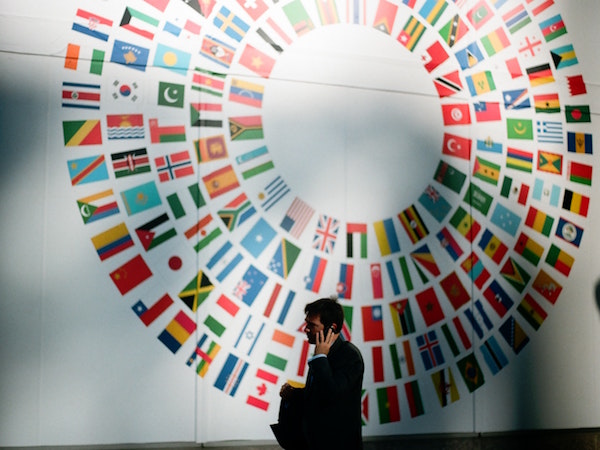Today more than ever, as the Covid-19 pandemic continues to change our lives, cooperation and collaborative work are necessary in many sectors of society — and translation is no exception.
The Translating Europe Workshop, a series of online conversations scheduled for 19 November, is an opportunity to reflect upon the use of technology in translation and the ever-increasing need for collaboration among professionals. The workshops have been organised by Ca’ Foscari’s Department of Linguistics and Comparative Cultural Studies and the European Commission — more specifically by the Directorate-General for Translation of the European Commission and the members of the Laboratorio sulla Traduzione delle Lingue Europee (Laboratory on the Translation of European Languages), with the support of the Treviso Campus of Ca’ Foscari University of Venice.
From 9 a.m., translation professionals and professors will reflect on the role that new technologies play in translation, on collaboration among different professionals, and on the importance of training students to be prepared for new developments in the translation sector.
We have spoken with professors Mirella Agorni and Giuseppe De Bonis to gain an initial understanding of the themes that will be explored during the workshop and take a closer look at the world of translation today.
Let’s talk about translation in Europe and in Italy: what are its main challenges, and which sectors need it the most? What is the role of translation in today’s publishing and multimedia industry?
On the one hand, there is a constant demand for linguistic mediation services, especially for EU institutions but also in the economic and cultural sectors. On the other hand, there is a growing demand for specialised translation — texts that are technical-scientific, economic, legal, political-institutional. In addition, there is a growing demand for translation services in the culture and entertainment industries, in which there has been a boom of multimedia and IT material (that calls for software localisation and multi-lingual websites), as well as audiovisual content (consider, for example, the popularity of streaming services).
Languages, cultures, multilingualism: what skills must a good translator have today?
In today’s world, good translators must have an excellent knowledge not only of the languages they work with, but also of the cultures that those languages reflect. We live in a global context in which the promotion of multilingualism is a primary objective. Therefore, translators need to know and work with multiple foreign languages and in multilingual contexts. In addition to this, translators need to have an excellent knowledge of their native language in all its registers and nuances, and they need to master technology, in particular word-processing, editing, and translation software which have become essential tools of the profession.
What are the advantages of the use of technology in translation, and what tasks remain distinctly 'human’?
In recent years, the unprecedented technological development in the field of translation has offered certain advantages to the profession, especially in terms of workload and time management of the translation process. In fact, translators can invest more energy in the revision process by making the most of computer assisted translation (CAT) tools. Nevertheless, language making is a distinctly human activity, and so is translation. Technology can offer valuable tools for translation, but it will never replace translators.
What are the benefits and challenges of collaboration in the field of translation?
The advantages of collaboration involve the optimisation of the cost-benefit ratio in economic and qualitative terms. Professionals can exploit technology to optimise their use of time and resources, and to devote more time to the revision process, which is essential to the delivery of high-quality texts. The greatest challenge involves the management of teamwork when the translator is “replaced” by a team of professionals who have translation skills, such as team managers, terminology experts, consultants, post-editors and editors.
What role do universities play in training translators? What skills do translators need to develop?
As mentioned above, translators need to be able to use new technologies: this is crucial for anyone who wants to work in the field of translation. University curricula must provide students with opportunities to integrate cultural and intercultural knowledge with more practical professional skills, as per market requests. Translation pedagogy should equip students with opportunities to apply their knowledge and skills in real-life communication — in other words, it should help students set out on a journey which is an ongoing intercultural learning process.











